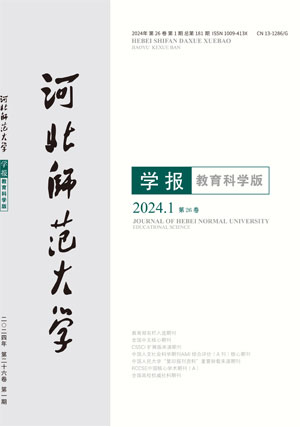期刊信息

- 刊名: 河北师范大学学报(教育科学版)Journal of Hebei Normal University (Educational Science Edition)
- 主办: 河北师范大学
- ISSN: 1009-413X
- CN: 13-1286/G
- 教育部名栏入选期刊
- 全国中文核心期刊
- CSSCI扩展版来源期刊
- AMI综合评价(A刊)核心期刊
- RCCSE中国核心学术期刊
- 全国高校特色栏目社科学报
- 中国人民大学“复印报刊资料”重要转载来源期刊
- 全国高校权威社科期刊
抗战时期国民政府初等教育政策述评
-
作者单位:华中师范大学教育科学学院, 湖北武汉 430079 -
起止页码:24 - 29页 -
DOI:
Onthe primary education policy of the national government during the anti-Japanese war
摘要/Abstract
抗战初期国民政府在初等教育阶段仍然沿用战前的义务教育制度,以普及短期小学教育为首要目标,而自1940年初为配合“新县制”的实行开始全面向国民教育制度转轨,并在学校设置、行政管理、经费筹集等方面也表现出与此前相异的某些特征。通观其在战时的整体成效,虽然使得西部各地小学校数量、学生人数及适龄儿童入学率相对战前都有了程度不同的提高,但却因为政策制定的误区及客观条件的限制,在实际的教学成效上仍存在着较大的缺陷与不足。
At the beginning of the anti-Japanese war, the national government still continues the pre-war system of the compulsory education in China, and aims at advocating elementary schooleducation. However, from spring of 1940 the traditional system is changed into the national educational system, which displays certain different characteristics in the aspects of school establishment, administration, fundraising and the like. In spite of the increase such policies bring on the number of elementary schools, students and enrollment percentage in the western regions, the education is actually inefficientdue to the defects of the policies themselves and practical limits.
